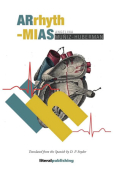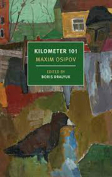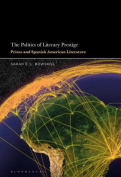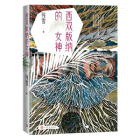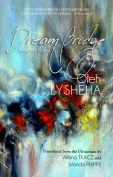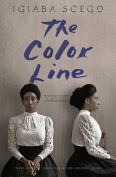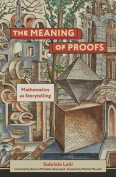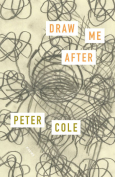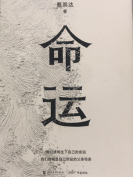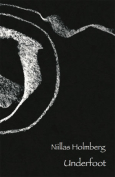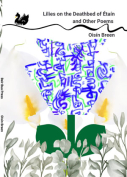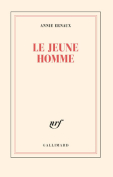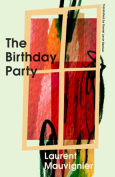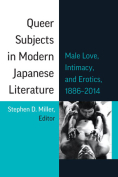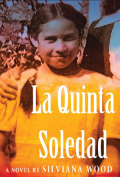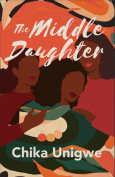The Middle Daughter by Chika Unigwe
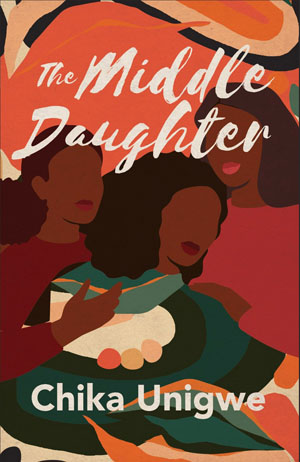 Ann Arbor, Michigan. Dzanc Books. 2023. 312 pages.
Ann Arbor, Michigan. Dzanc Books. 2023. 312 pages.
The Middle Daughter is set in contemporary Enugu in the heart of eastern Nigeria. It revolves around a family who suffered tragic loss and the ways their trauma-coping mechanisms complicate life, while commenting on Nigeria’s upper-middle-class echelon and the dichotomy of moving up or down the social ladder through marriage. It explores the vulnerability of grief and fragility of relationships. It takes a cursory look at the family unit and considers how pressure can pull apart a once steady family structure, while shedding light on the health-care system, women’s reproductive rights, “surrogacy,” and baby factories in Nigeria.
The first line of the novel, “I fear the man who is my husband,” is bench-pressing so many thematic weights. It layers a sense of foreboding by piquing the reader’s curiosity and foreshadowing events connected to abuse. The story opens with news of Udodi’s death, the first daughter, who pursued higher education in the United States and crashed in an accident a week before her return to Enugu. After her death, the family is thrown into irreconcilable grief that feels impossible to escape. Unigwe writes, “Udodi’s death was the beginning of the raging storm but at that moment, we thought that the worst had already happened, and that life would treat us with more kindness.”
Nani, the protagonist and middle child, is othered in so many subtle ways. The names of the first and last daughters start with a U: Udodi and Ugo. Both names signify peace and abundance, respectively. However, the middle child’s name starts with an N: Nani. Aside from being othered by the lettering of her name, Nani means “scarcity,” a direct contrast to the abundance and goodwill of her sisters’ names. The otherness that was prophesied in her name manifests consistently and drives her into exile for several years.
Nani is engrossed in her grief and numb to the advancement of the people in her life who are “successfully” navigating their pain. Her desire for visibility through subtle acts of rebellion leaves her vulnerable and creates the domino that upends her life. She experiences debilitating levels of scarcity, deprivation, and violence till she shatters like a clay pot left to burn in the kiln for too long.
The book features multiple POVs from other major characters. It is punctuated by The chorus, a series of poems, narrated by Udodi, who lyricizes the cultural and mythological context of the characters’ lives through an omniscient lens. The writing in the book is compelling and grounds the reader in its scenes. The novel is fast-paced and plot-driven with great character development that propels the reader through the pages. There are so many life-altering events that the reader will be left gasping for air. Unigwe raises the stakes of the story with every chapter until it crescendos and leaves the audience devastated.
Delight Ejiaka
University of Nevada, Las Vegas

